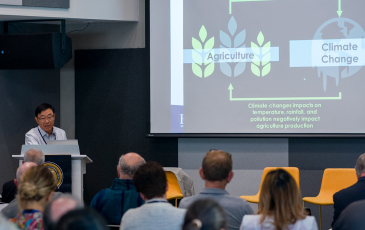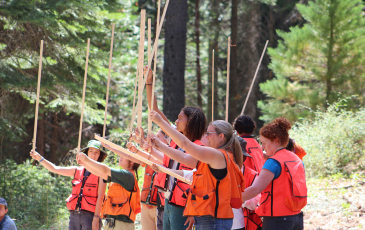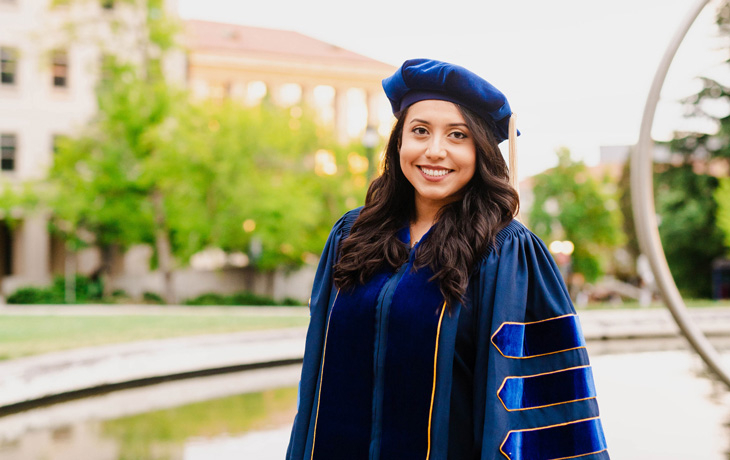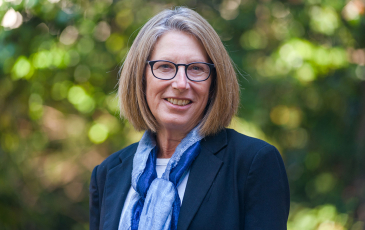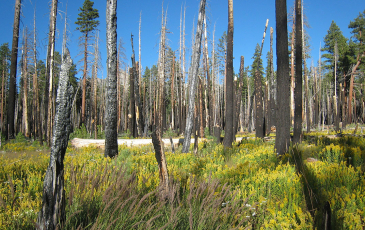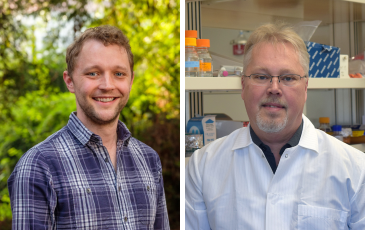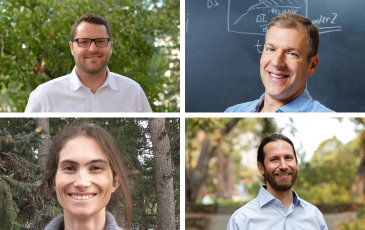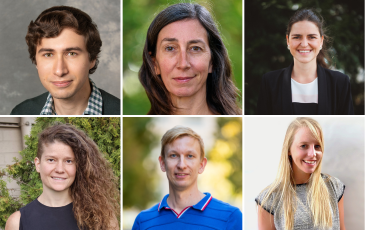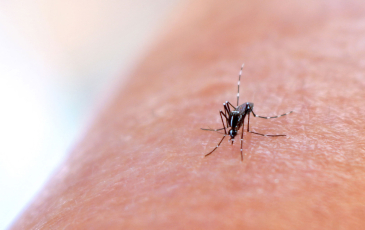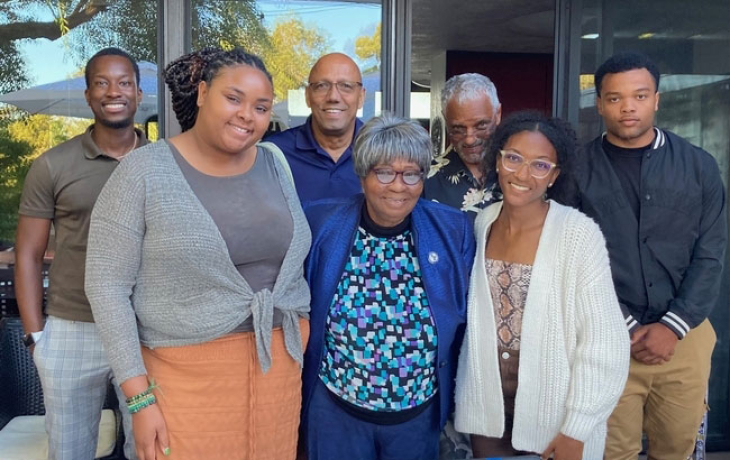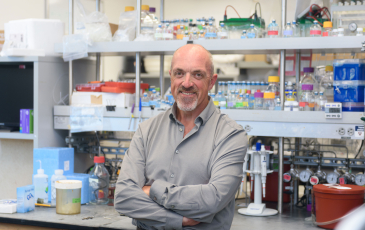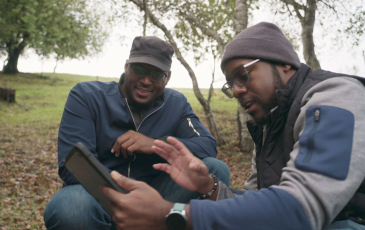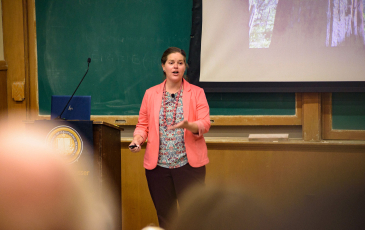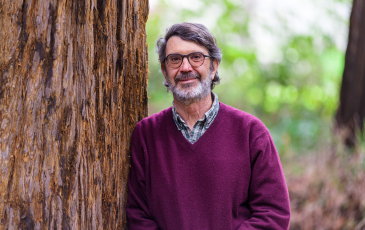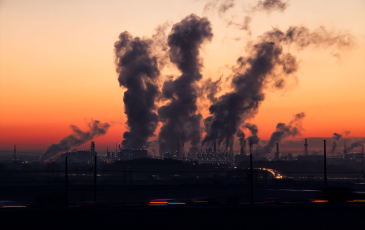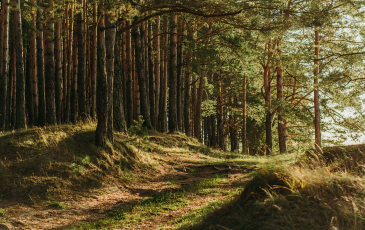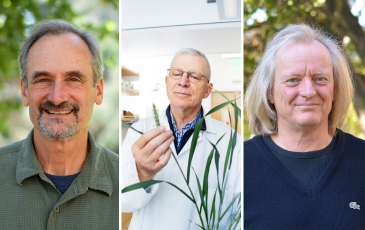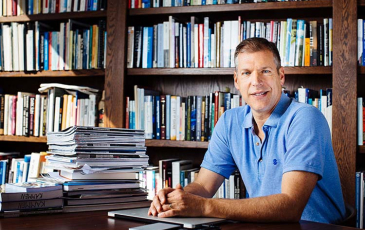Conference engages industry leaders, policymakers, academics, investors, and entrepreneurs in discussions of revolutions in agricultural and food science.
A mini-camp with major impact
California community college students were introduced to UC Berkeley’s forestry program through a condensed weeklong program held earlier this summer.
Student Spotlight: Areidy Beltran-Peña
The recent graduate and climate change scientist spoke to us about her time at UC Berkeley and her future as a Stanford University postdoc.
Whendee Silver to deliver 2023 Reeburgh Lecture at AGU Fall Meeting
The ESPM professor was chosen in recognition of her pioneering contributions to global biogeochemistry.
Addressing the health hazards of climate change
Rausser College researchers are working to identify and mitigate the health hazards of sea-level rise.
How wildfires have remade the Illilouette Creek Basin
A decades-long experiment in Yosemite involving wildfires is showing researchers what a healthy forest should look like.
Professors Ben Williams and Anders Näär named 2023 Spark Award recipients
The award provides UC Berkeley faculty members with funding, resources, and mentorship for entrepreneurial success.
Rausser College faculty awarded California Climate Action Grants
Projects led by professors Ted Grantham, Miranda Redmond, Dan Kammen, and Peter Nelson have received Climate Action Matching Grants to advance research that builds climate resilience and equity in California.
Rausser College welcomes Fall 2023 incoming faculty
Rausser College of Natural Resources welcomes six new professors this fall.
Climate change could require important adaptations for mosquito-borne disease control
A new study led by ERG researchers suggests that a method used to stop the transmission of mosquito-borne diseases is resilient to current climate change, but could be stymied by future heat waves.
'It's OK to be different,' Lewis advises Black environmental scholars
Vernard Lewis, professor emeritus of cooperative extension, spoke to four students from Historically Black Colleges and Universities conducting summer research at UC Berkeley.
Microbes to the rescue with John Coates
Coates, a professor in PMB and director of the Energy and Biosciences Institute, spoke to the American Society for Microbiology about his research in applied and environmental microbiology.
How the built environment affects biodiversity
In a new PBS documentary, ESPM professor Chris Schell spoke about how coyotes and other animals adapt to life in urban ecosystems.
Berkeley Talks: Jessica Morse on how we can live with fire
Morse, who serves as California's Deputy Secretary for Forest and Wildland Resilience, spoke about how the state is working to prevent catastrophic wildfires during last fall's S.J. Hall Lecture.
Reflections on the weather mayhem of the summer of 2023
Professor Dennis Baldocchi offers personal insights into the unprecedented period of extreme weather that struck the northern hemisphere.
Racial gap in air quality may persist under Biden program, study finds
Omitting racial demographics from a new evaluative tool may hamper the Biden administration's efforts to address environmental inequalities.
Quantifying the strength of the land carbon sink
As climate change threatens land-based ecosystems, a new paper from ESPM researchers highlights the role they play in offsetting human carbon emissions.
2023 Faculty Retirements
Rausser College of Natural Resources congratulates professors Steve Beissinger, Richard Dodd, and Brian Staskawicz on their retirement from UC Berkeley.
Hidden cameras spot wildlife returning home after 2018 megafire
ESPM researchers analyzed motion-sensor camera photos collected before and after the Mendocino Complex Fire and found that many species were remarkably resistant to the impacts of the historic blaze.
Why what happened to Oppenheimer then is relevant now
Professor Dan Kammen, who resigned from a federal position during the Trump Administration, highlights the similarities and differences of his situation and what happened to J. Robert Oppenheimer.


